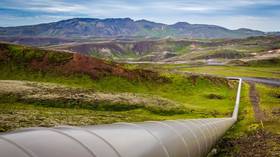World Bank offers its green guidance to Russia
The World Bank (WB) has suggested Russia introduce a carbon tax in industries with high greenhouse gas emissions, including the fuel and energy sector, to reach carbon neutrality goals.
“Putting a price on carbon is the bedrock for the broader range of climate policy instruments. Carbon pricing can take a number of forms – usually as a tax or a tradeable permit system,” the WB said in its report on the Russian economy published on Wednesday.
It specified that “making polluters pay for the prevention of costs they impose on society” would help gain resources that can be used to accelerate Russia’s green transition.
“Energy, transport and major industrial plants are some of the most common sectors to have carbon pricing applied... Including these emissions in carbon pricing would cover 79% of emissions in Russia,” the report noted.
While the organization suggests Russia focus on carbon pricing by setting a tax or a fee-based permit system, it also mentions alternatives such as a greenhouse gas emissions trading system (GHG). This is based on the ‘cap and trade’ system, in which the authorities set an aggregate emission limit for a number of polluting sites, which is then divided into quotas and distributed among them. Another alternative is introducing emissions-based energy taxes, or energy excise taxes, which, the WB notes, are currently very low in Russia by international standards.
In August, Moscow announced it would set up a number of working groups to oversee the country’s transition to green energy, with a focus on renewables and environmental protection, and a target of reaching carbon neutrality by 2060. Despite coming under fire for setting a target so far off – a decade after many other nations – Russian President Vladimir Putin insisted that the country is doing its part to reduce emissions.
The WB report stresses, however, that in order to achieve this goal, Russian authorities must “take concrete actions of moving towards decarbonization” in the nearest future.
For more stories on economy & finance visit RT's business section















